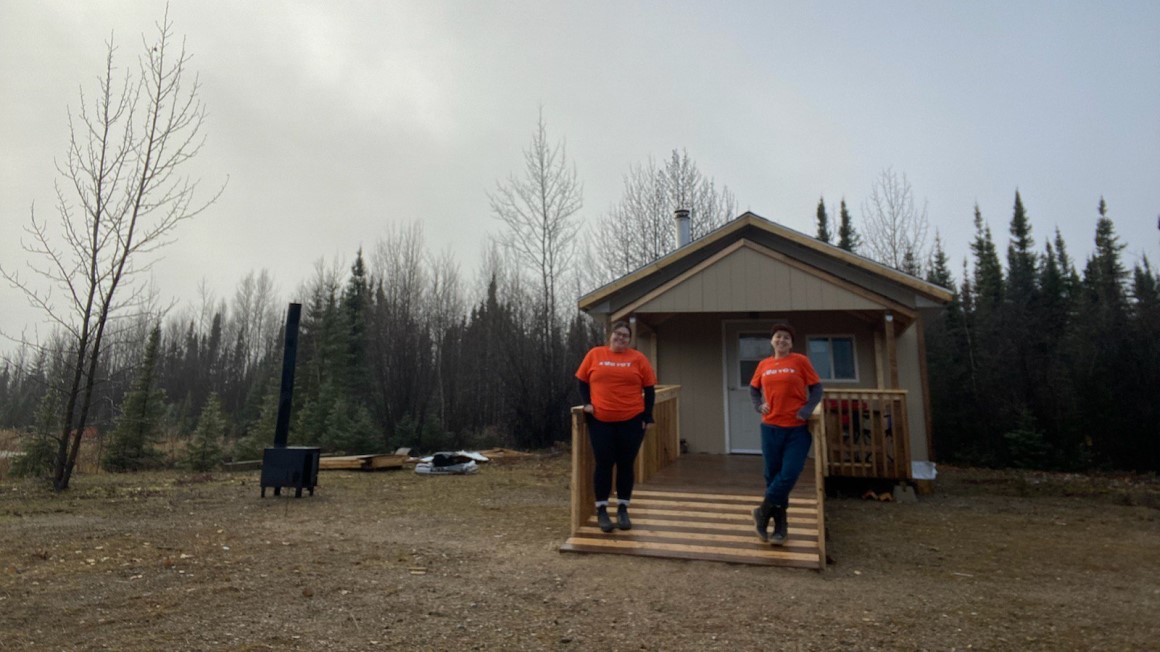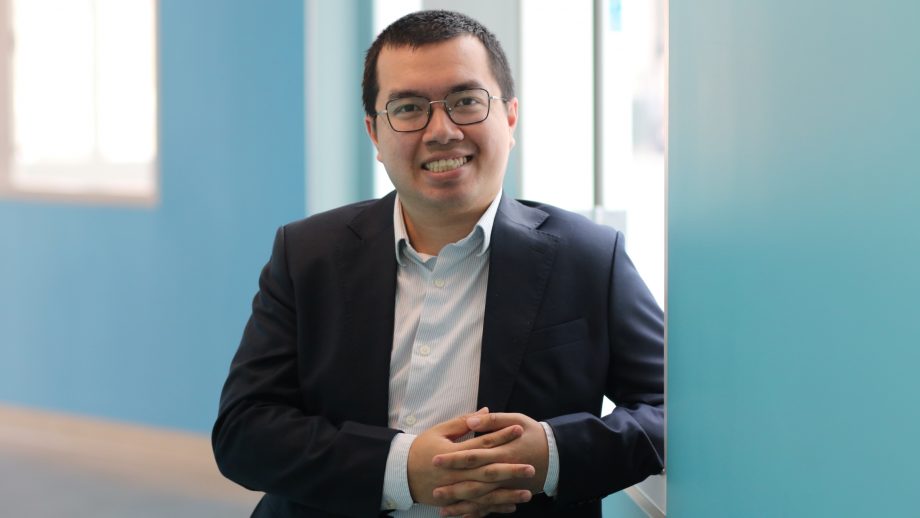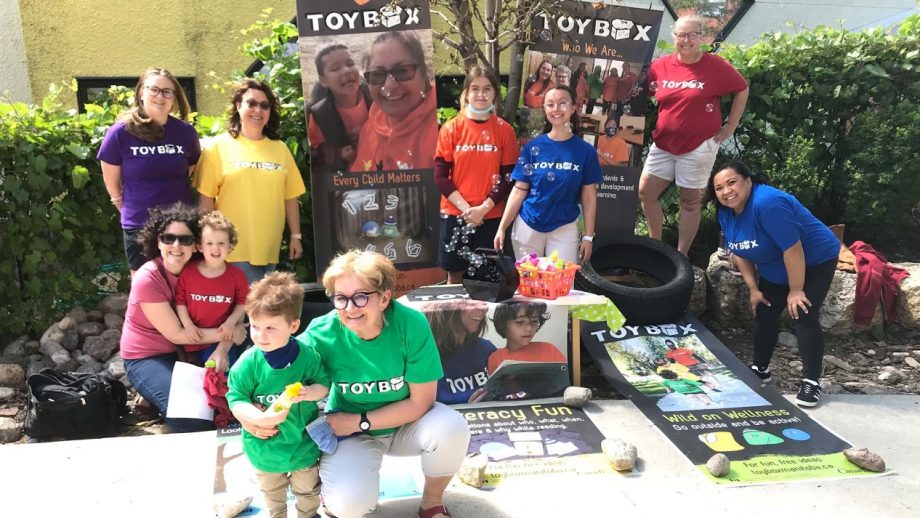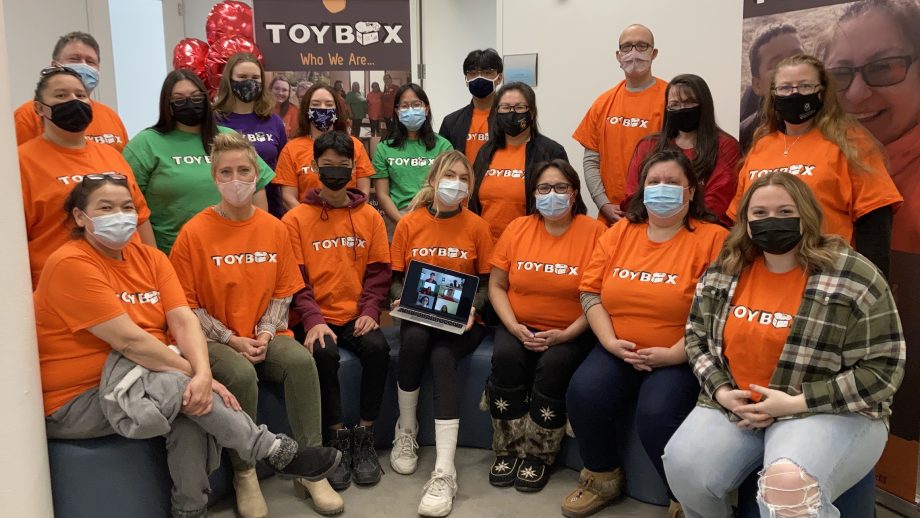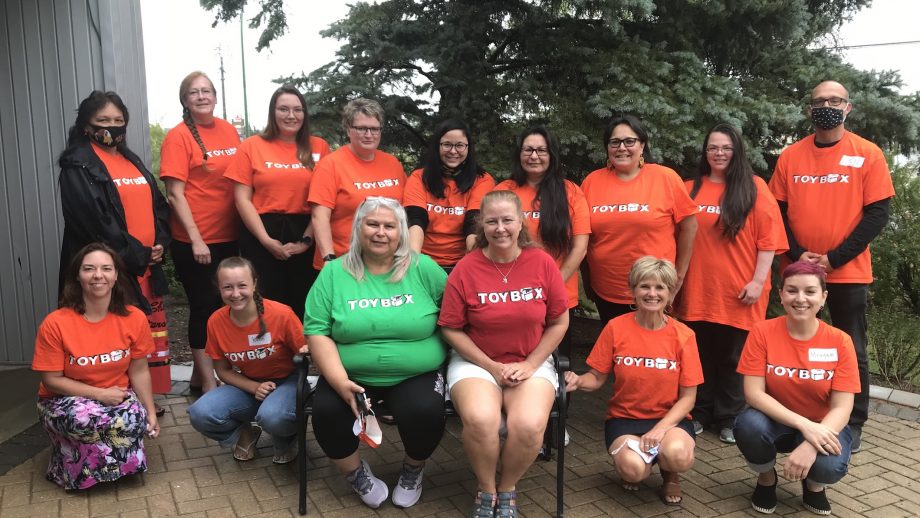Faculty of Education students Mikaila Collins and Meagan Nenka had the opportunity to learn about educational practices in Northern Manitoba last month.
This journey to Misipawistik and Tataskweyak has been life changing.
Meagan Nenka
Along with professors Dr. Sheri-Lynn Skwarchuk and Dr. Yvonne Vizina, and nursery school director Karlin Mann, they travelled ten hours north of Winnipeg to the Misipawistik and Tataskweyak Cree Nations to share ToyBox Manitoba resources and learn about Indigenous and northern culture.
They were welcomed by ToyBox community hosts Leanne Lavallee (en route in Grand Rapids) and Liz Keeper (in Split Lake) who introduced them to the respective communities and helped them find their way.
“It was a dark and stormy night when we arrived, and the GPS quite literally told us to drive into the middle of Split Lake,” said Collins. “We quickly learned to trust our instincts and set technology aside.”
The group entered the community as outsiders but left as friends.
“This journey to Misipawistik and Tataskweyak has been life changing,” said Nenka. “The warm welcome we received in both communities began with laughter while breaking bread, and grew into a beautiful and reciprocal sharing of knowledge and personal experiences.”
One of the most profound learning experiences came as they attended a class intended for Grade 12 Cree culture students.
“We were told that we may not be entitled to hear all of the stories and teachings because the stories were only intended for Indigenous audiences,” said Mann.
This was a wake-up call.
“We had not experienced a situation where knowledge was privileged, and would intentionally not be shared with us,” said Mann. “We learned how resources needed to be saved for Indigenous youth.”
This helped the group appreciate the gift of knowledge that the community was sharing with them.
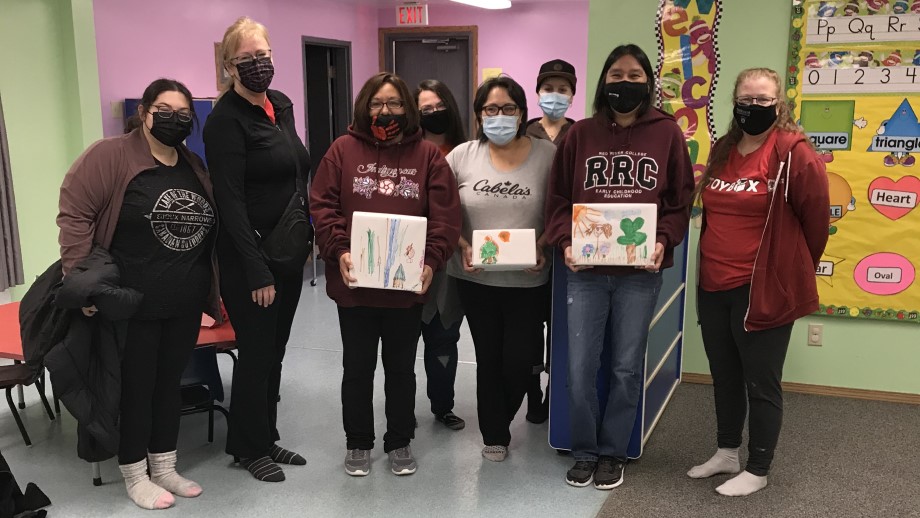
Left to right: Mikaila Collins, Yvonne Vizina, Terri-Lynn Flett, Karlin Mann (behind), Liz Keeper-Garson, Meagan Nenka (behind) Adele Ouskun, Sheri-Lynn Skwarchuk.. Photo supplied.
“We were embraced with so much kindness, warmth and immeasurable generosity,” said Skwarchuk. “Every person throughout the journey shared their knowledge, their time, their stories, their recipes, and their life’s work.”
Whether people worked in healthcare, education, sustainability, or as a support worker or student, everyone was open to sharing stories. They talked about community successes and pride, and they talked about struggles with local issues including poverty, suicide, alcohol, housing, and health-and-safety concerns.
When Collins learned that, despite the fact that 80% of Manitoba’s power comes from the Split Lake region, the water is poisoned with zebra mussels and other pollutants making it unsafe for drinking, fishing and swimming, she felt “taunted by the lake.”
“It was there, but not useable,” she said. “While Winnipeggers are avoiding bottled water for environmental reasons, Tataskweyakians are importing stacked crates of plastic water bottles for drinking, and pouring individual bottles of water into coffee makers, soup pots, and tea kettles as a means of survival.”
Despite the sometimes harsh environment, community members are quick to share humour and laughter.
“They laugh so much here,” said Vizina. “It is healing. It is medicine.”
Before the group of UWinnipeg educators began their journey back to the city, their hosts arranged a gathering to see them off.
“It was at that point that I realized this trip had meaning for more than just us,” said Skwarchuk. “The gratitude of the community and the generosity of the gifts we were presented reflected that this visit was not just for ToyBox or for the five of us as guests. We felt that our mutual presence and enthusiasm to learn forged lasting connections.”
To learn more about the ToyBox project, visit them on their website, ToyBoxManitoba.ca.

